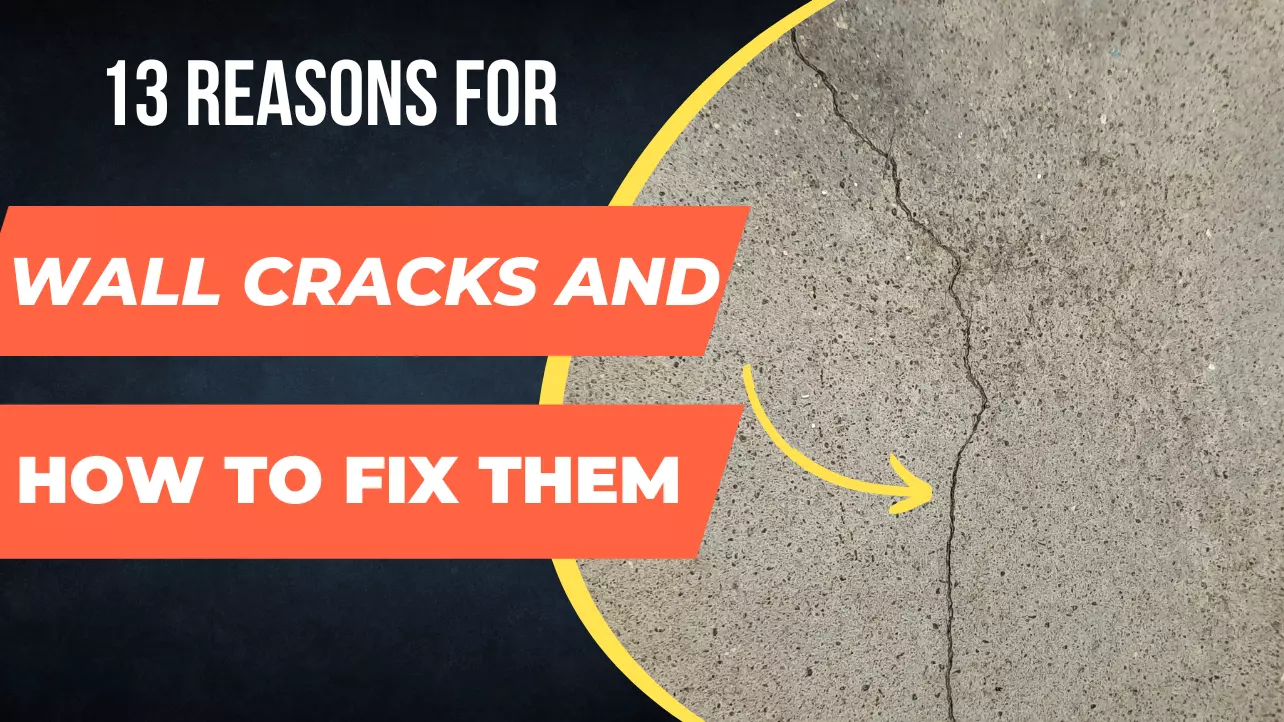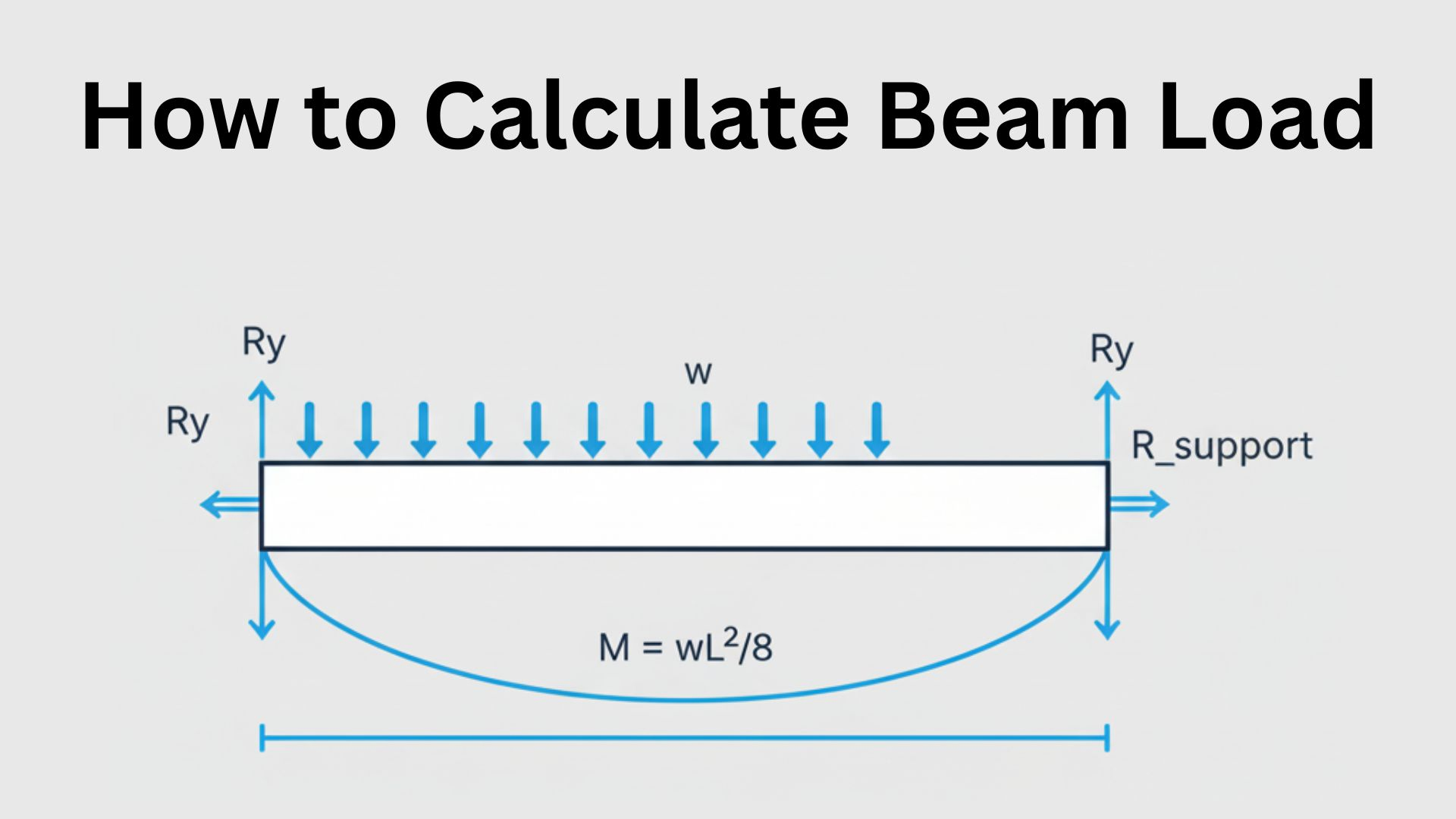Walls are an important part of any structure, providing support and stability. But when cracks appear in walls, it can be cause for concern.
There are many possible reasons why your walls might crack, ranging from foundation problems to plumbing leaks.
In this blog post, we’ll explore 13 possibilities for why your walls might be cracked and offer advice on how to fix each issue of wall cracks.
Do You Know Why Your Walls Are Cracked?
If you’ve noticed cracks in your walls, you might be wondering what’s causing them and how to fix them.
Here are 13 potential reasons for why your walls might be cracked, as well as some tips on how to repair the damage.
1. Foundation problems are one of the most common reasons for cracks in walls. If your foundation is not level or has shifting soils underneath it, this can cause the walls to crack.
2. Plumbing leaks can also cause cracks in walls as water seeps into the cracks and expands them.
3. Settlement often occurs as buildings settle into the ground over time and can cause cracks in walls.
4. Improper concrete mix is another common reason for cracks as too much water in the mix can make the concrete shrink and crack as it dries.
5. Thermal expansion and contraction can also cause cracks as temperatures fluctuate and materials expand and contract.
6. Drying shrinkage is another common culprit as concrete dries and shrinks slightly, causing any existing cracks to widen.
7. Poor workmanship can also lead to cracks if corners are not properly reinforced or if expansion joints are not installed correctly.
8. Settlement during construction can also cause cracking if the foundation settles unevenly or if there is too much weight on one side of the building during construction.
9. Inadequate curing can also contribute to cracking as curing helps to prevent shrinkage cracking by keeping moisture in the concrete so that it doesn’t dry too quickly.
10. Poor quality concrete is another possible cause of cracking as it may contain too many impurities which can weaken it and make it more susceptible to cracking.
11. Improper joints are another possible cause of cracking as they provide weak spots where cracking can occur.
12. Poor drainage around a building can also led to wall cracks as water seeps into the soil and puts pressure on the walls from below.
13. Frost action is another potential cause of wall cracks as freezing water expands and puts pressure on any existing cracks in the wall.
There are a number of reasons why your walls might be cracked. Some of these causes are more serious than others but all should be investigated to determine the best course of repair.
Foundation Problems.
The most common cause of cracks in walls is foundation settlement. Foundation settlement occurs when the soil underneath the foundation settles or shifts, causing the foundation to settle with it.
This can happen for a variety of reasons, including:
• The type of soil the foundation is built on. Some types of soil are more prone to settling than others.
• The amount of moisture in the soil. Soil that is too dry or too wet can settle more easily than soil that is just right.
• The way the foundation was built. Some foundations are more susceptible to settling than others.
How to fix it
If you think your cracks might be caused by foundation settlement, there are a few things you can do to try to fix the problem:
• Check the gutters and downspouts around your home to make sure they are clear and functioning properly. Water that pools around your foundation can add extra weight and pressure, causing your foundation to settle further.
• Try adding additional support to your foundation, such as piers or pilings, to help distribute the weight evenly and prevent further settling.
• If your home has already settled significantly, you may need to have it lifted up and new foundations poured.
Plumbing Leaks.
One of the most common causes of cracks in walls is plumbing leaks.
When water leaks from pipes, it can seep into the surrounding materials and cause them to expand and contract. This can lead to cracks forming in the walls.
If you think you have a plumbing leak, it’s important to have it fixed as soon as possible.
Plumbing leaks can cause significant damage to your home if left unchecked.
How to fix it
If you think that your cracks are caused by plumbing leaks, the best way to fix the problem is to hire a professional plumber. They will be able to locate the source of the leak and repair it, preventing further damage to your walls.
Settlement.
One of the most common reasons for cracks in walls is settlement. When a house settles, it can cause the foundation to shift and the walls to crack.
There are two main types of settlement: differential and total.
Differential settlement occurs when one part of the foundation settles more than another.
This can happen when the foundation is not evenly supported or when there is a change in the moisture content in the soil.
Differential settlement usually happens slowly over time, so you may not notice it until you see cracks in your walls.
Total settlement occurs when the entire foundation settles at once.
This can happen if the foundation was not properly compacted before construction, if there are changes in groundwater levels, or if there are tree roots growing underneath the foundation.
Total settlement usually happens quickly, so you may notice cracks in your walls right away.
How to fix it
If you think that your cracks are due to settlement, there are a few things you can do to try to fix the problem:
- Make sure that your gutters and downspouts are clear and working properly. This will help prevent water from seeping into the soil around your foundation and causing it to settle.
- Check for tree roots growing near your foundation and remove them if necessary.
- If you have an unfinished basement, make sure that any columns or beams are properly supported so that they don’t put extra pressure on one side of the foundation and cause it to settle unevenly.
- If you see any cracks in your walls, seal them with caulk or epoxy so that water cannot get into them and cause further damage.
Improper Concrete Mix.
The use of an improper concrete mix is one of the most common causes of cracks in walls.
The wrong proportions of ingredients in the mix can result in a finished product that is too weak or too brittle.
This can cause cracks when the concrete is first poured, or as it dries and cures.
How to fix it
If you suspect that an improper concrete mix was used in your construction, there are a few ways to confirm this.
First, you can have a sample of the concrete tested by a laboratory.
Second, you can examine the records from the contractor or supplier to see what type of mix was used.
Finally, you can visually inspect the concrete itself to look for signs of poor quality, such as large voids or a rough surface.
Thermal Expansion and Contraction.
Thermal expansion and contraction are two of the most common causes of cracks in walls. As temperatures change, materials expand and contract. This can put stress on the materials, causing them to crack.
How to fix it
There are a few ways to fix thermal expansion and contraction cracks.
One is to use expansion joints, which are special strips of material that allow for movement without cracking.
Another is to use flexible sealants or adhesives.
Drying Shrinkage.
Drying shrinkage is the most common cause of cracks in concrete walls. When water evaporates from the concrete, it causes the concrete to shrink. This can happen during the curing process or after the concrete has been cured.
How to fix it
There are several ways to prevent or reduce drying shrinkage cracks:
- Use a low water-to-cement ratio.
- Add plasticizers or superplasticizers to the concrete mix.
- Use properly graded aggregate.
- Use admixtures that increase workability and decrease water demand.
- Cure the concrete properly.
Poor Workmanship.
One of the most common causes of cracks in walls is poor workmanship. This can include everything from using the wrong type of concrete mix to not properly curing the concrete.
How to fix it
If you suspect that poor workmanship is the cause of your cracked walls, the best thing to do is to hire a professional to come and take a look. They will be able to identify the problem and recommend the best course of action.
settlement during construction.
Construction settlements often occur when the ground beneath a structure is not compacted properly before construction begins. The weight of the building causes the loose soil to settle, which can lead to cracks in the foundation and walls.
How to fix it
To avoid this problem, make sure that the ground is thoroughly compacted before construction begins. If you’re not sure how to do this, consult with a professional contractor or engineer.
If settlement does occur during construction, it can be fixed by stabilizing the foundation with piers or helical anchors. This will prevent further settling and help to support the weight of the building.
Inadequate Curing.
One of the most common causes of cracks in walls is inadequate curing of the concrete. If concrete is not cured properly, it will dry too quickly and shrink. This can cause cracks, especially around doors and windows.
How to fix it
To prevent this, be sure to cure your concrete properly by keeping it moist for at least 7 days after it has been poured. You can do this by spraying it with water or covering it with a wet burlap sack.
Poor Quality Concrete.
One of the most common causes of cracks in walls is poor quality concrete. Concrete that is not properly mixed or cured can be very weak and susceptible to cracking. In some cases, poor quality concrete can even cause the foundation of a home or building to settle unevenly and crack.
How to fix it
If you suspect that poor quality concrete is the cause of your cracks, there are a few things you can do to confirm this.
First, have a professional take a look at the cracks and determine if they are indicative of poor-quality concrete.
If so, they will likely recommend replacing the affected areas with new, properly mixed and cured concrete.
In some cases, poor quality concrete can be repaired by injecting it with a special resin that bonds the concrete together and strengthens it.
However, this is usually only effective for small cracks. If the cracks are large or numerous, it is best to replace the affected areas entirely.
Improper Joints.
The most common type of wall cracks is due to improper jointing. Joints are created when concrete walls are poured into sections.
The joints allow the concrete to expand and contract without cracking.
However, if the joints are not properly sealed, water can seep in and cause the concrete to expand and crack.
How to fix it
To fix this problem, you need to reseal the joints with a flexible sealant. You can also use epoxy injections to repair the cracks.
Poor Drainage.
Water is one of the most damaging elements to a foundation. If the ground around your home does not slope away from the foundation, water can pool next to the foundation and seep in through cracks or other openings. This can lead to significant damage, including cracking, heaving, and even collapse.
How to fix it
There are a few things you can do to improve drainage around your home:
Make sure gutters and downspouts are clean and in good repair, so they can carry water away from the foundation.
Check the grading around your home (the slope of the ground) to make sure it slopes away from the foundation at a rate of 6 inches for every 10 feet. You may need to add or remove soil to achieve the proper slope.
Install an underground drain system that carries water away from the foundation.
This is usually done by excavating around the perimeter of the house and installing perforated drain pipes in a gravel bed beneath the footing (the part of the foundation that extends below ground level).
The pipes should be connected to a sump pump that will remove water from the system and discharge it away from the house.
Frost Action.
When water seeps into small cracks in concrete and freezes, it expands and causes the cracks to grow larger. This process is called frost action or freeze-thaw damage.
How to fix it
Frost can be prevented by keeping water out of the cracks in the first place. One way to do this is to seal the cracks with a flexible sealant that will allow the concrete to expand and contract without breaking the seal.
Conclusion
If you notice cracks in your walls, there could be a number of reasons why.
From foundation problems to plumbing leaks, settlement, or poor workmanship, there are a number of possibilities that could be causing the issue.
It’s important to have a professional assess the situation to determine the root cause of the problem.
Once you know what’s causing the cracks, you can take steps to fix it and prevent further damage.
In some cases, the damage may be irreversible, but it’s important to take action to prevent the problem from getting worse.


